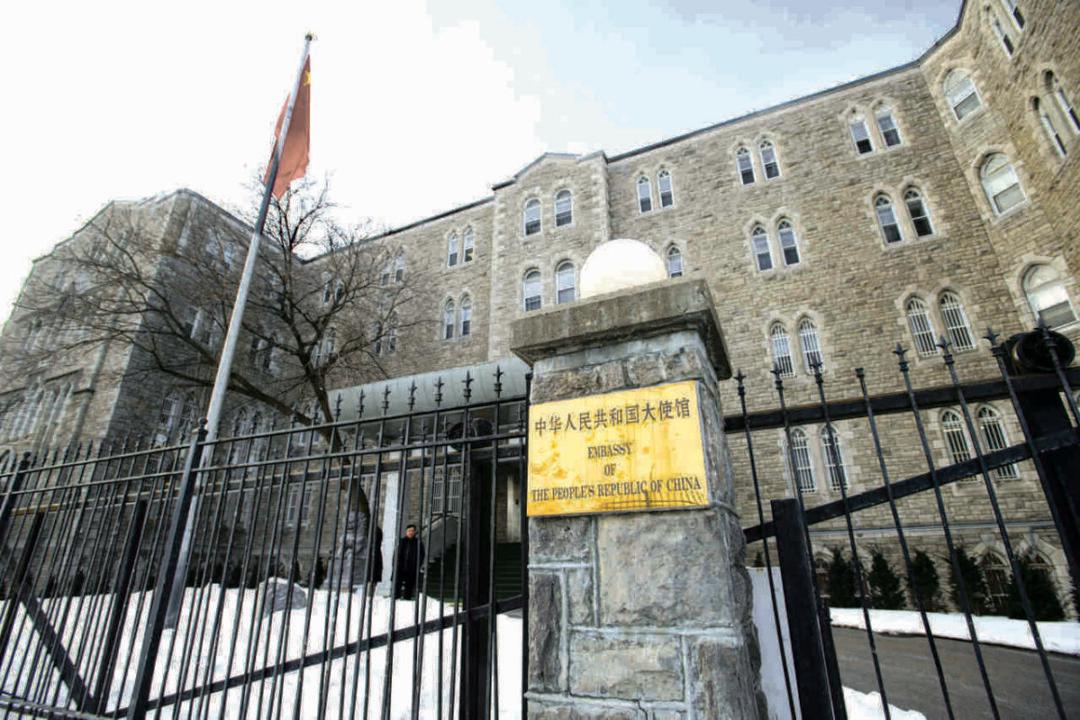The Chinese regime has increasingly used non-Chinese individuals to surveil and interfere with Falun Gong practitioners in Canada, according to an updated report detailing how the persecution of the practice extends beyond China’s borders.
The report details several instances where the Chinese Communist Party (CCP) has attempted to use non-Chinese individuals to monitor or intimidate Falun Gong practitioners during their activities in Canada.
Falun Gong practitioners holding peaceful protests outside Chinese embassies and consulates risk being photographed, the report says. The photos and personal information gathered are often used by the regime to intimidate them, according to the report.
In an example from July 2022, Falun Gong practitioners Mary Kovacks and Kathy Gillis reported being photographed by a middle-aged Caucasian male while they were meditating across the street from the Chinese Embassy in Ottawa. When confronted, the man responded with verbal abuse and accused them of not belonging in Canada, despite both being Canadian-born citizens of Caucasian descent.
In some cases, physical violence has been inflicted on Falun Gong practitioners.
“The CCP’s foreign influence is clandestine and deceptive. Non-Chinese Canadians have been recruited to serve as agents of the CCP as a camouflage to monitor Falun Gong activities and carry out surveillance of practitioners,” FDAC said.
The updated FDAC report was released ahead of the 25th anniversary of the CCP’s persecution of the practice, which began on July 20, 1999. The organization plans to submit the report to the Foreign Interference Commission, which is investigating allegations of China’s interference in Canadian electoral and democratic processes and targeting Canadian MPs and critics of the communist regime.
Adherents of Falun Gong—a spiritual practice rooted in Buddhist traditions—have faced torture, forced labour, physical and sexual abuse, and even live organ harvesting at the hands of the CCP since the regime initiated a persecution campaign in July 1999. The CCP viewed Falun Gong’s belief in divinity and morality as counter to its atheist ideology and saw the practice’s popularity as a threat to its authoritarian rule in China.







